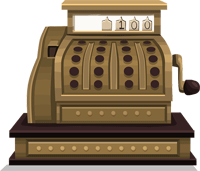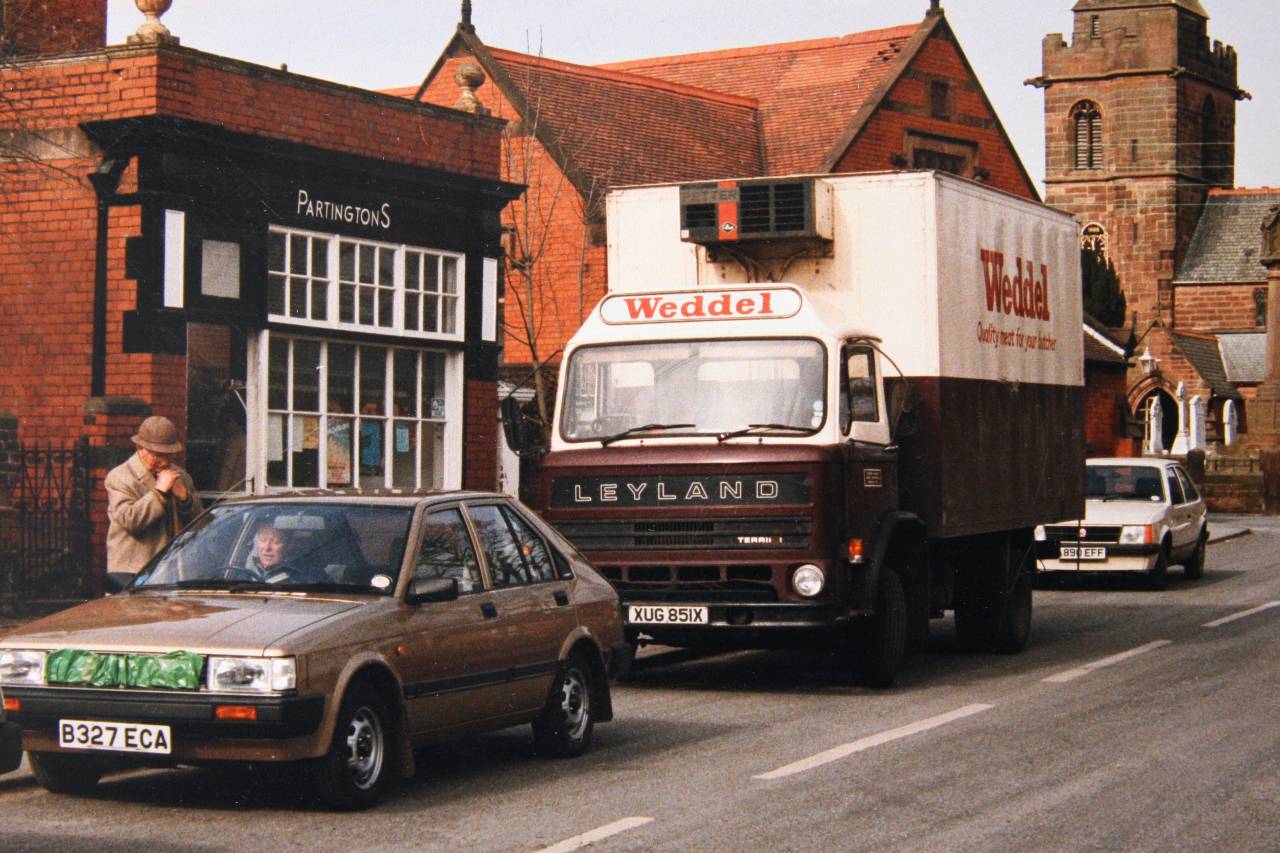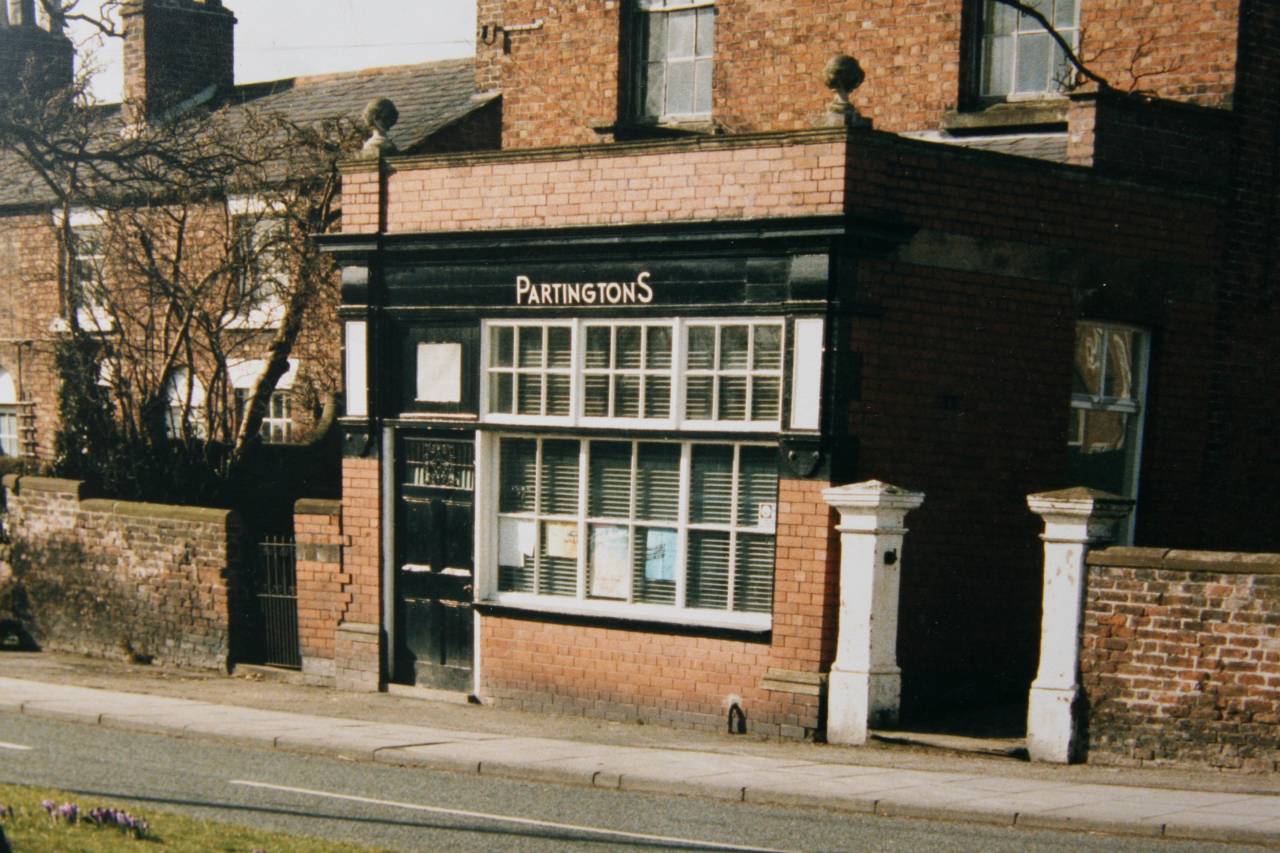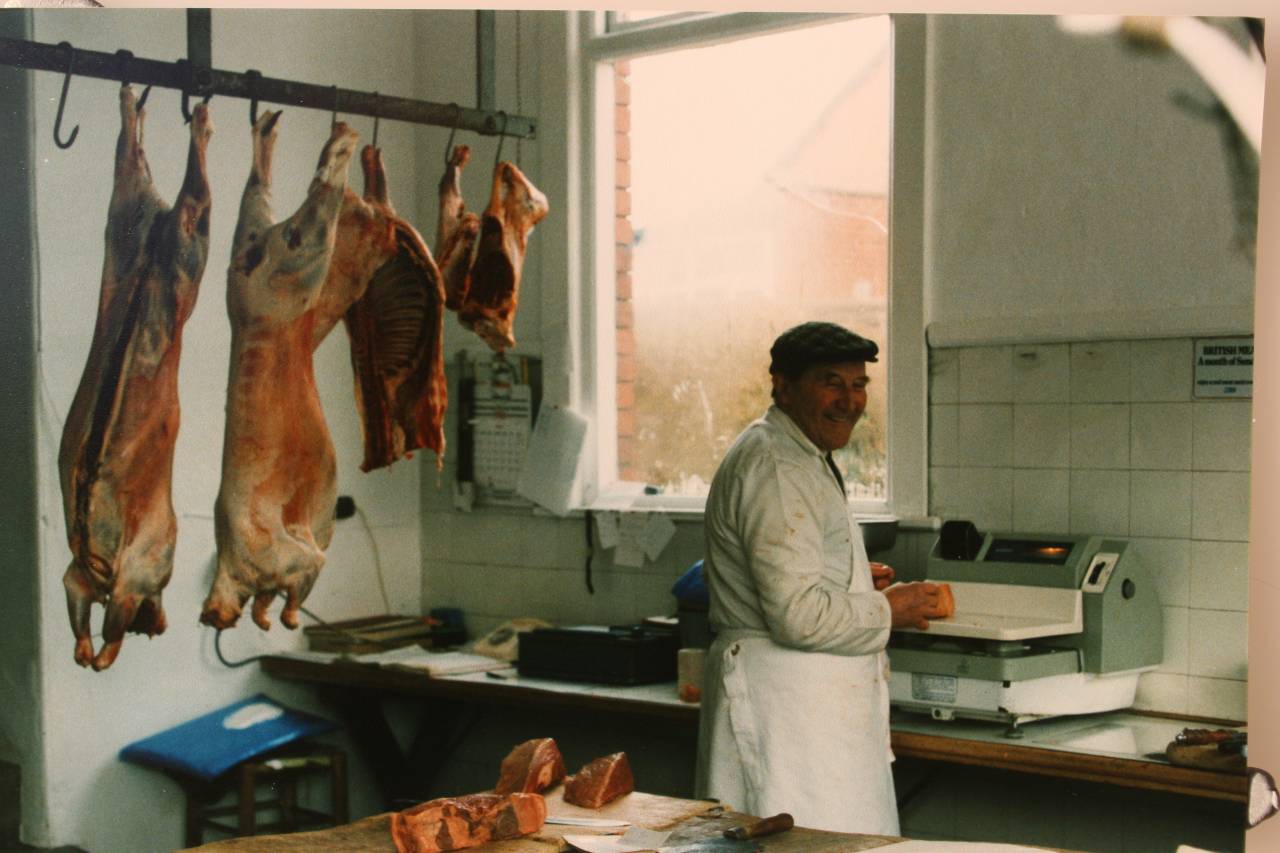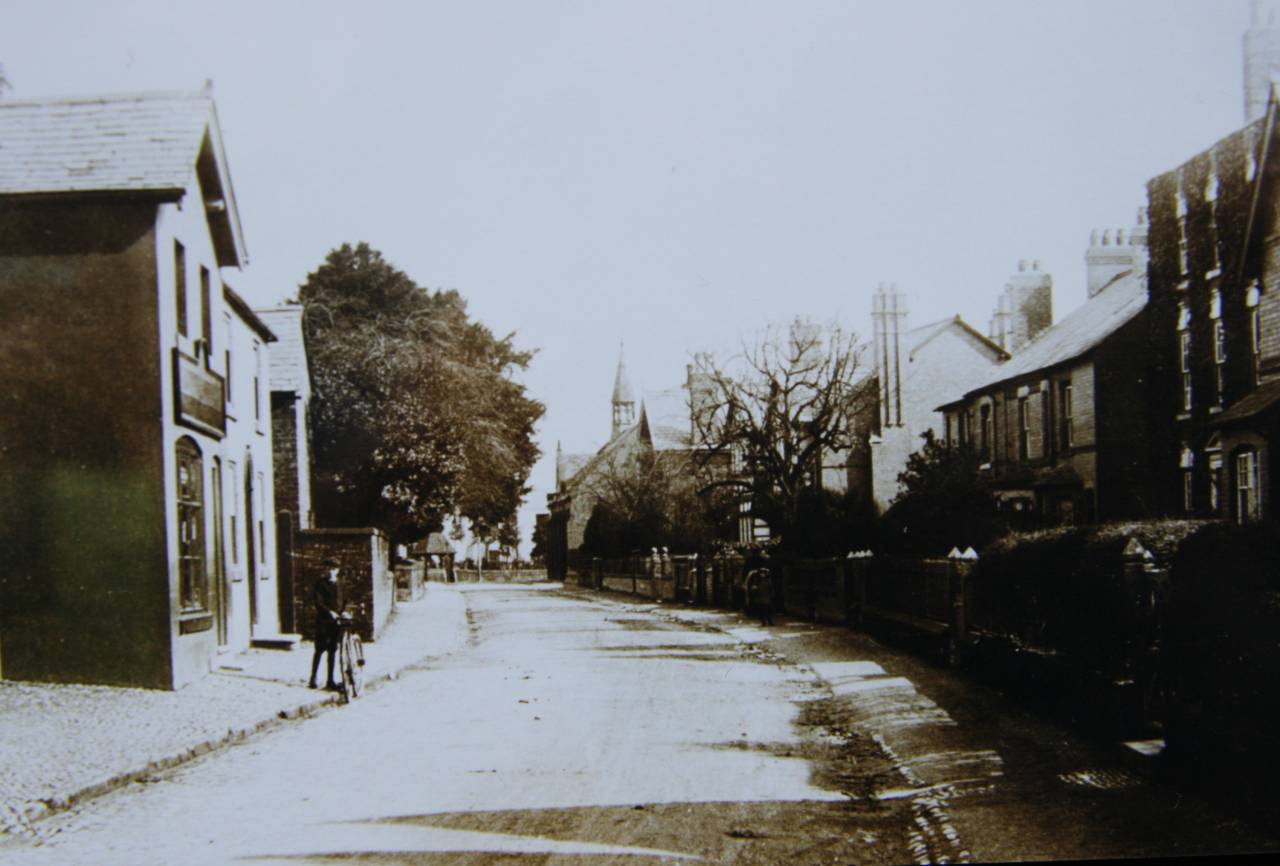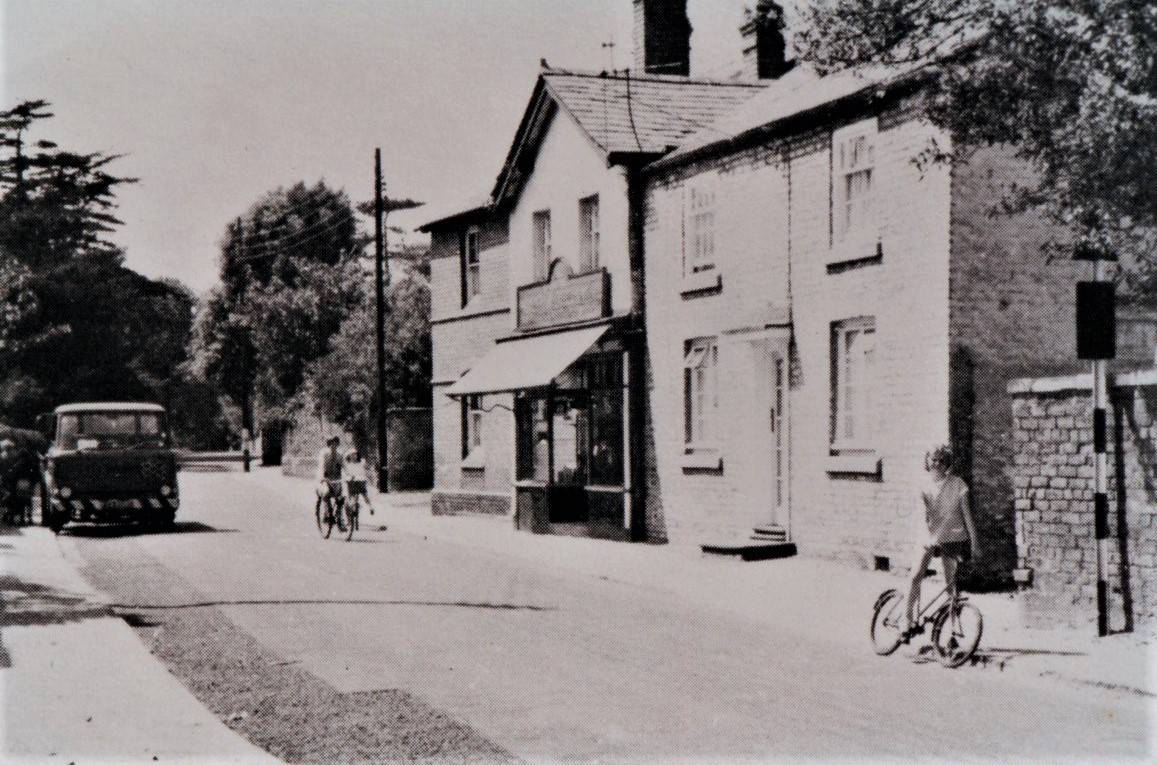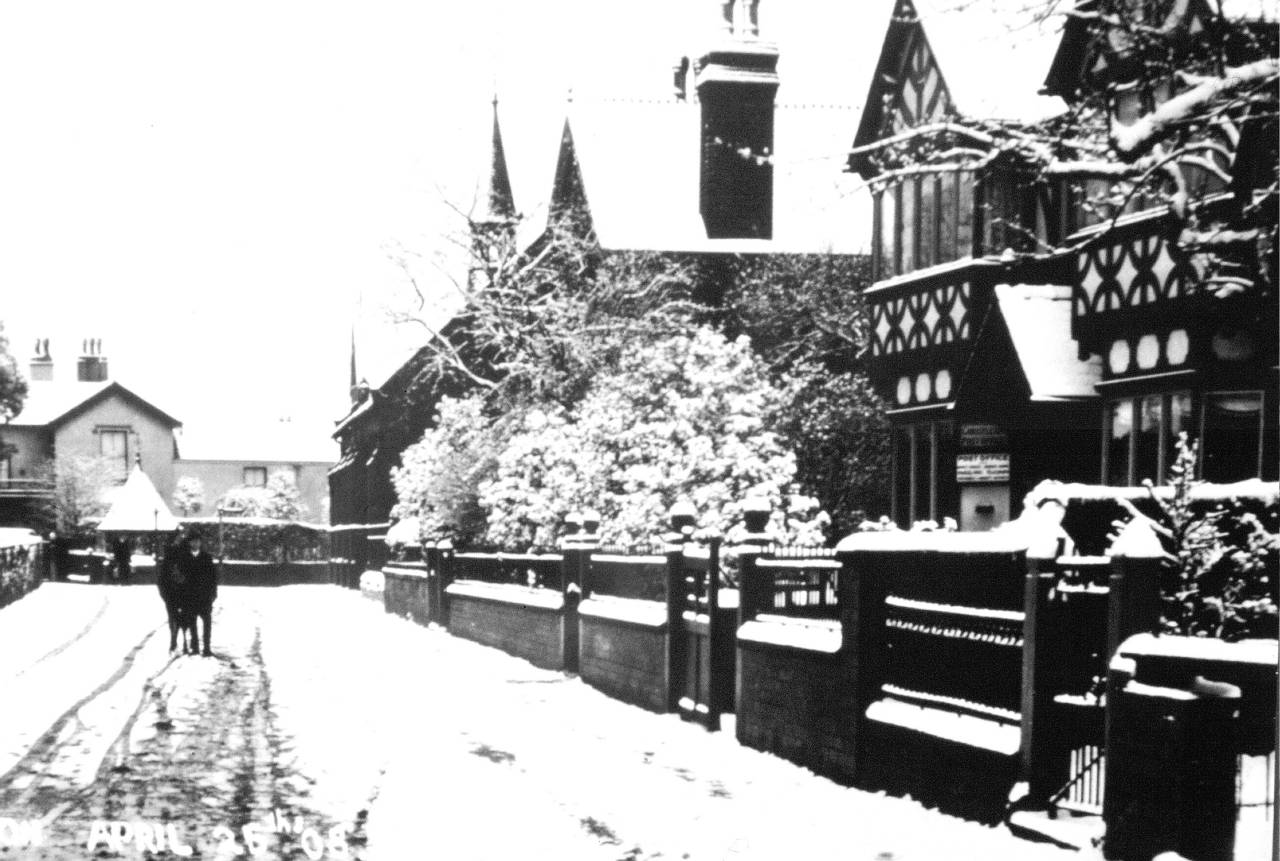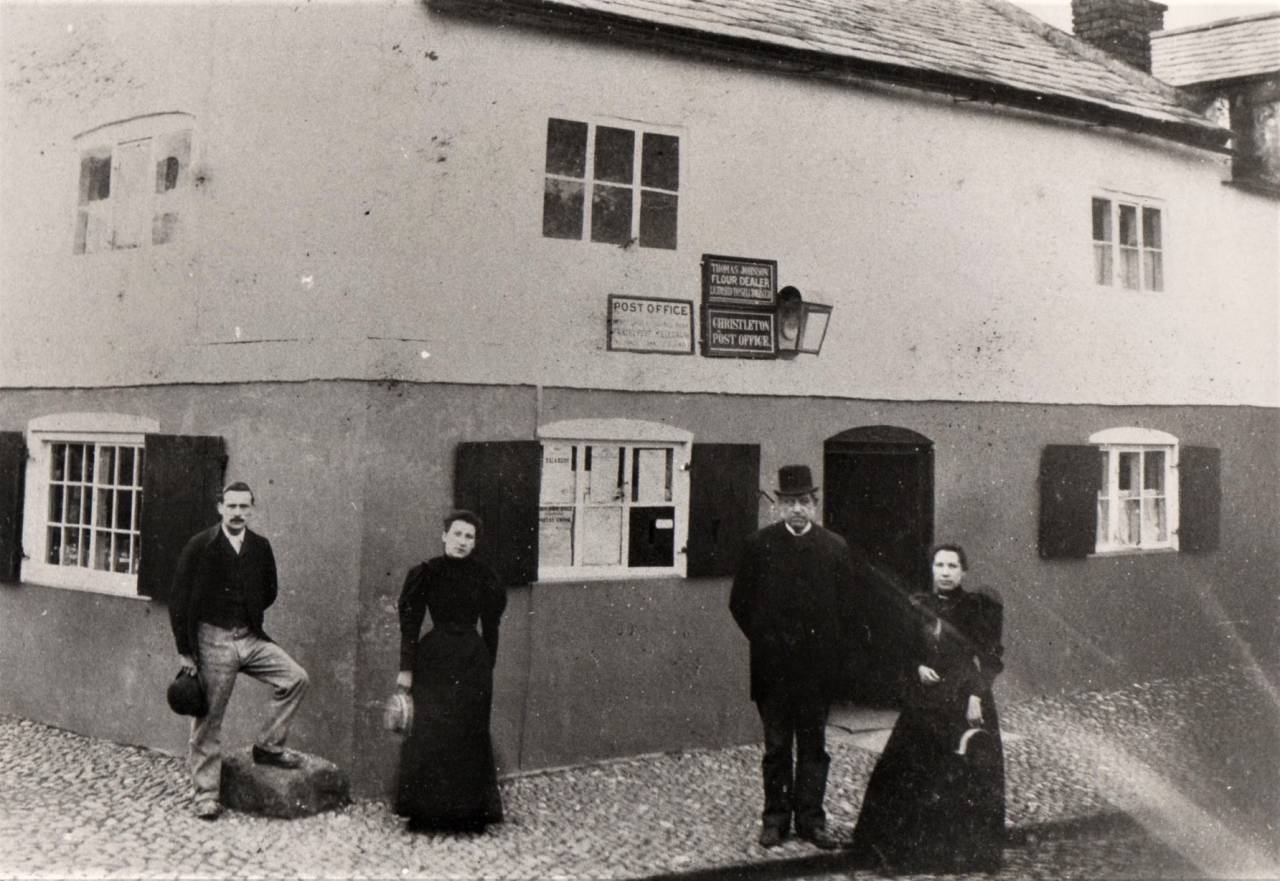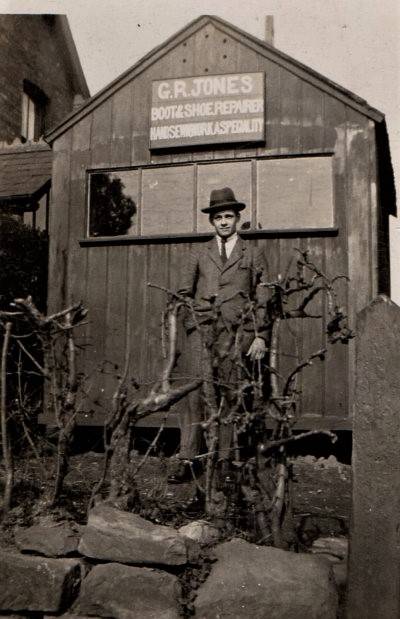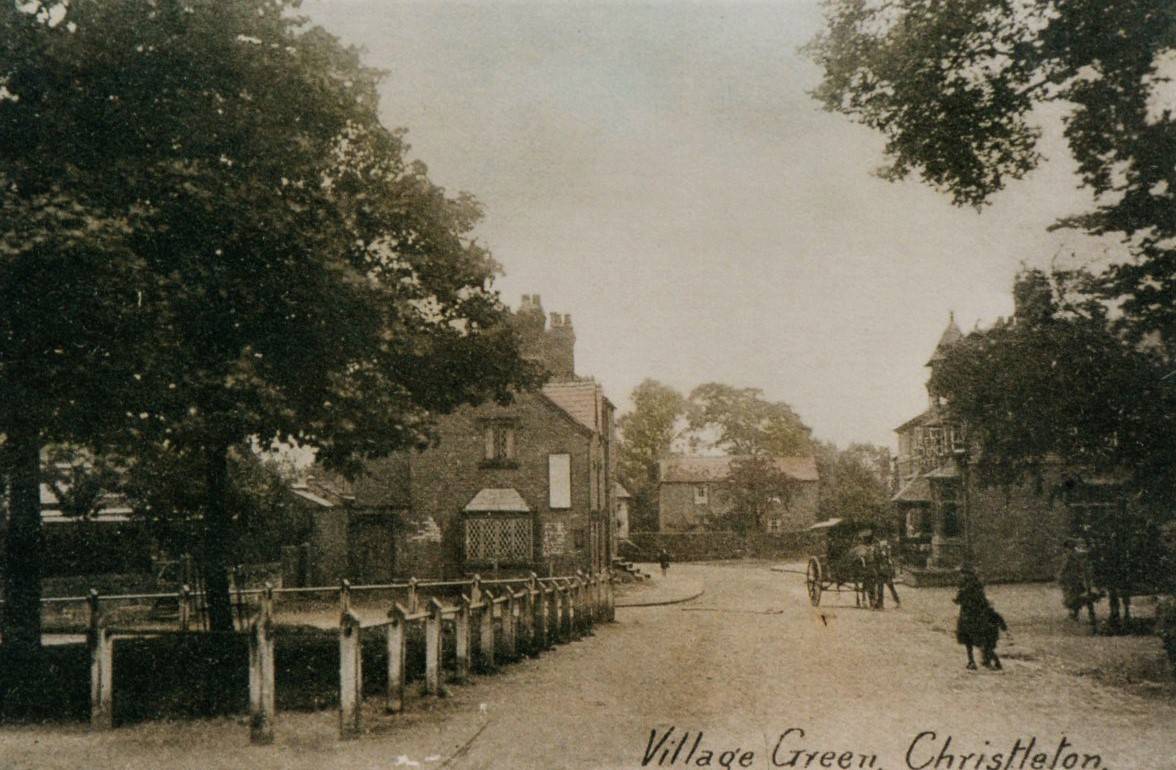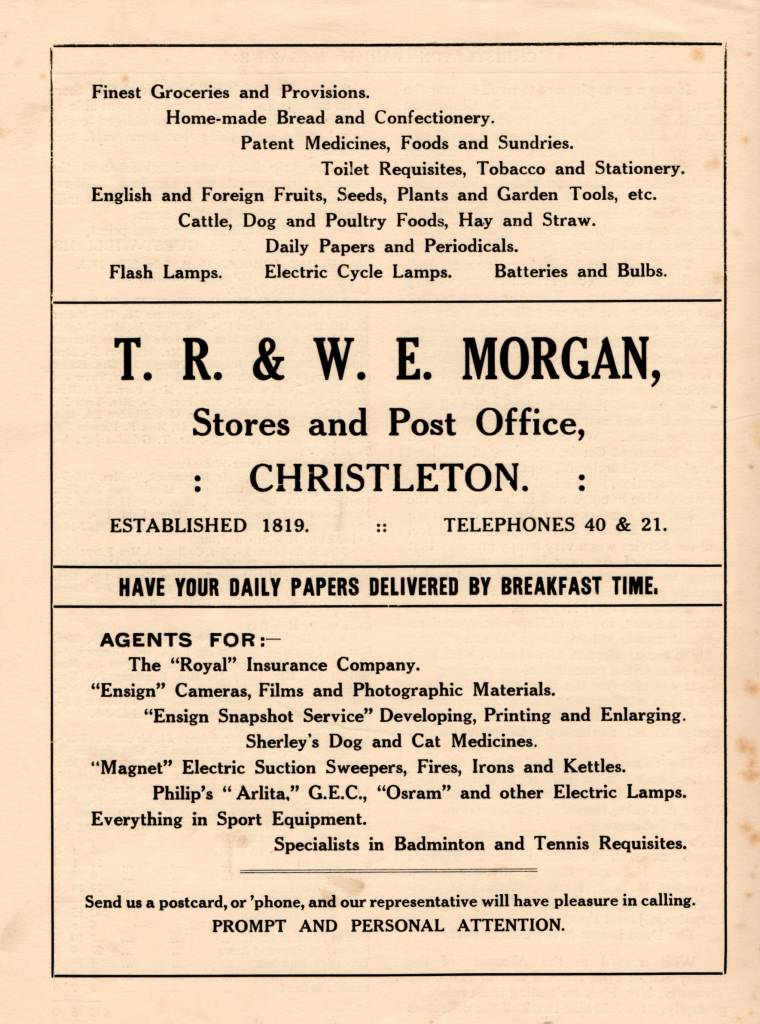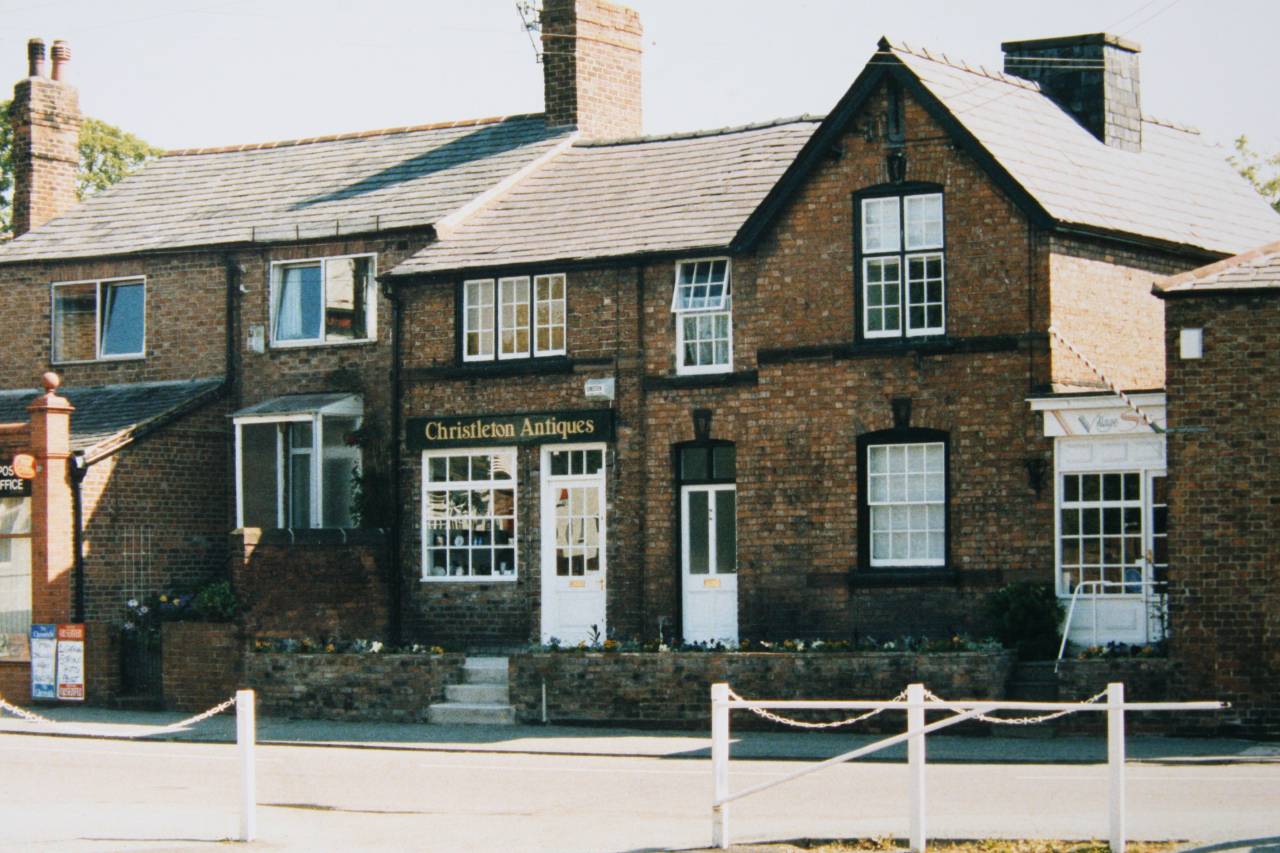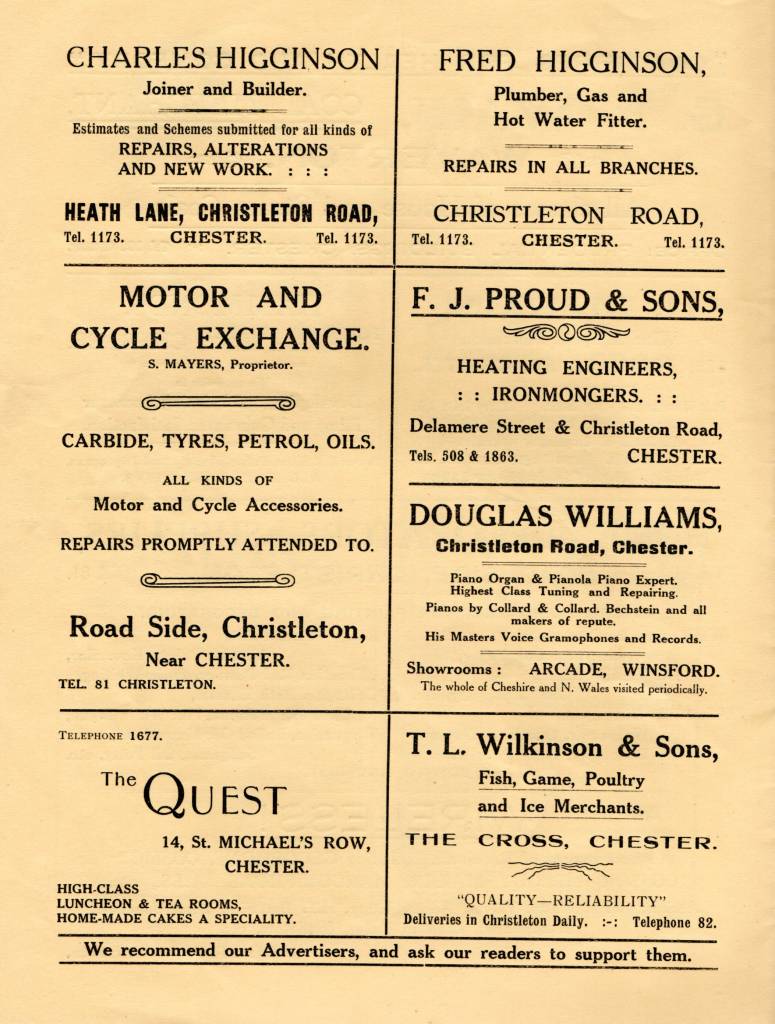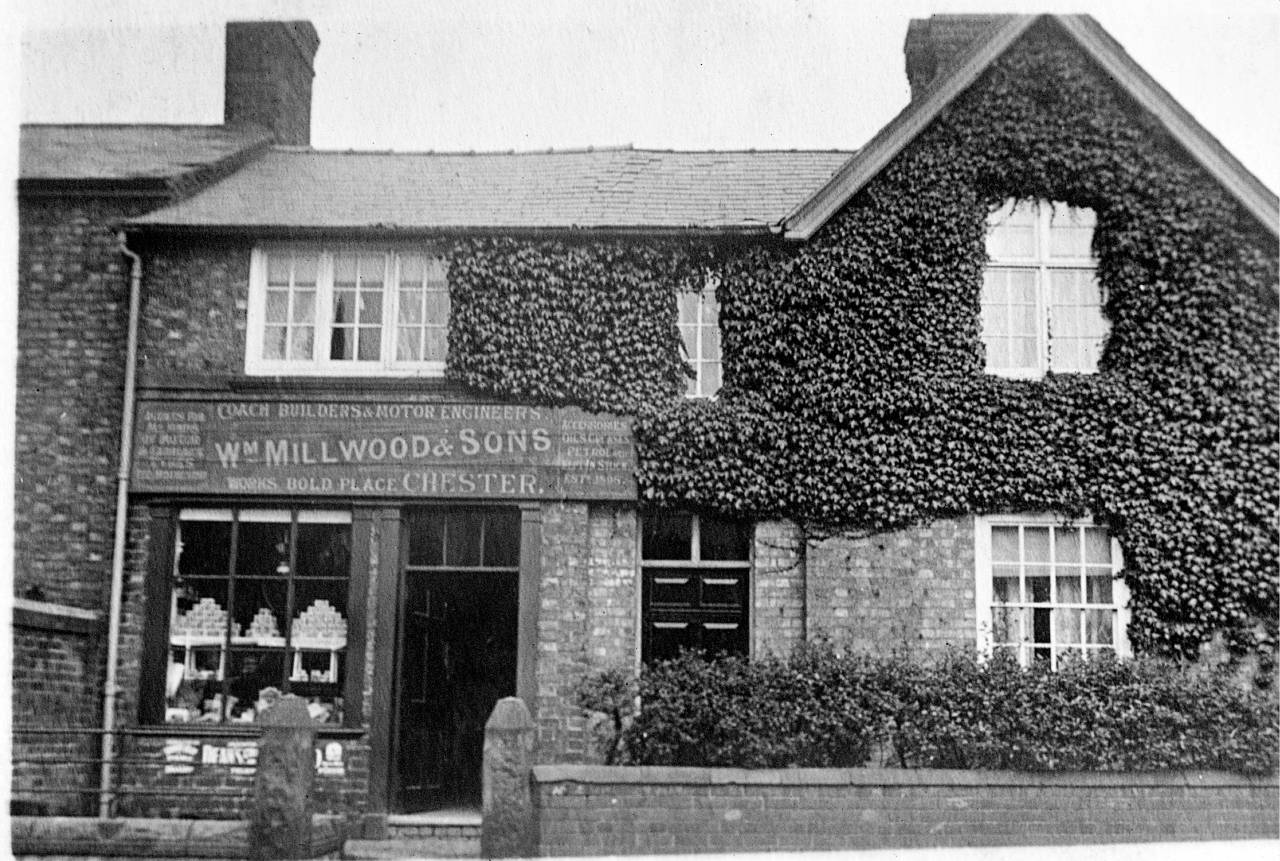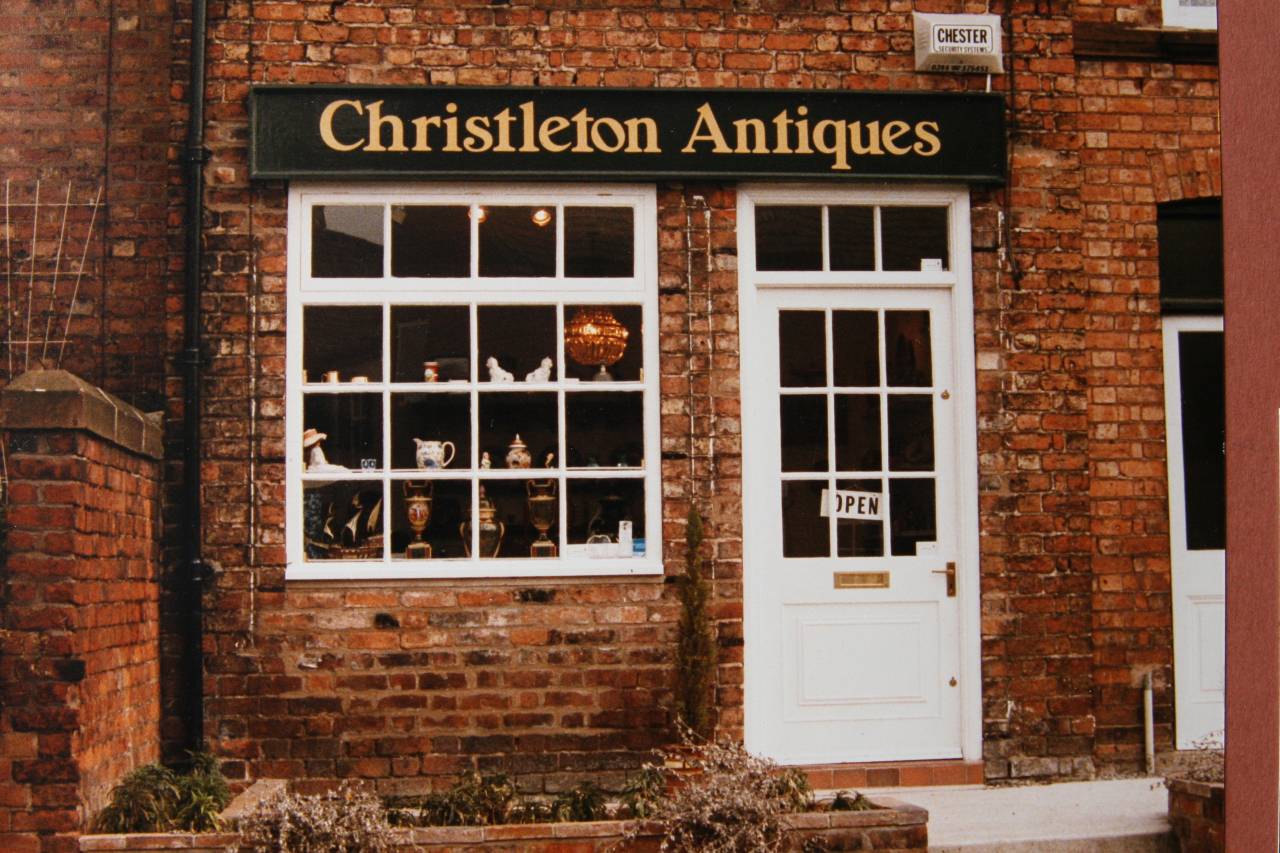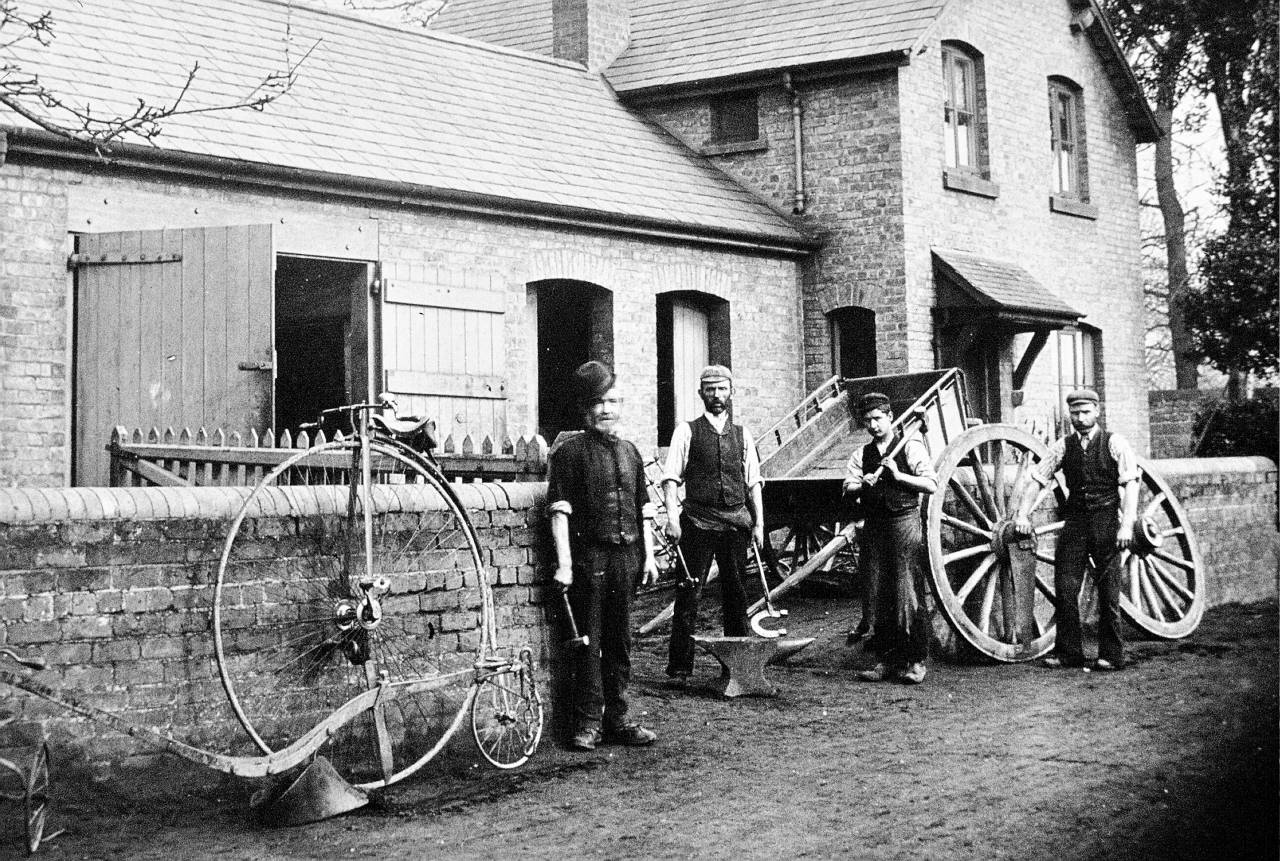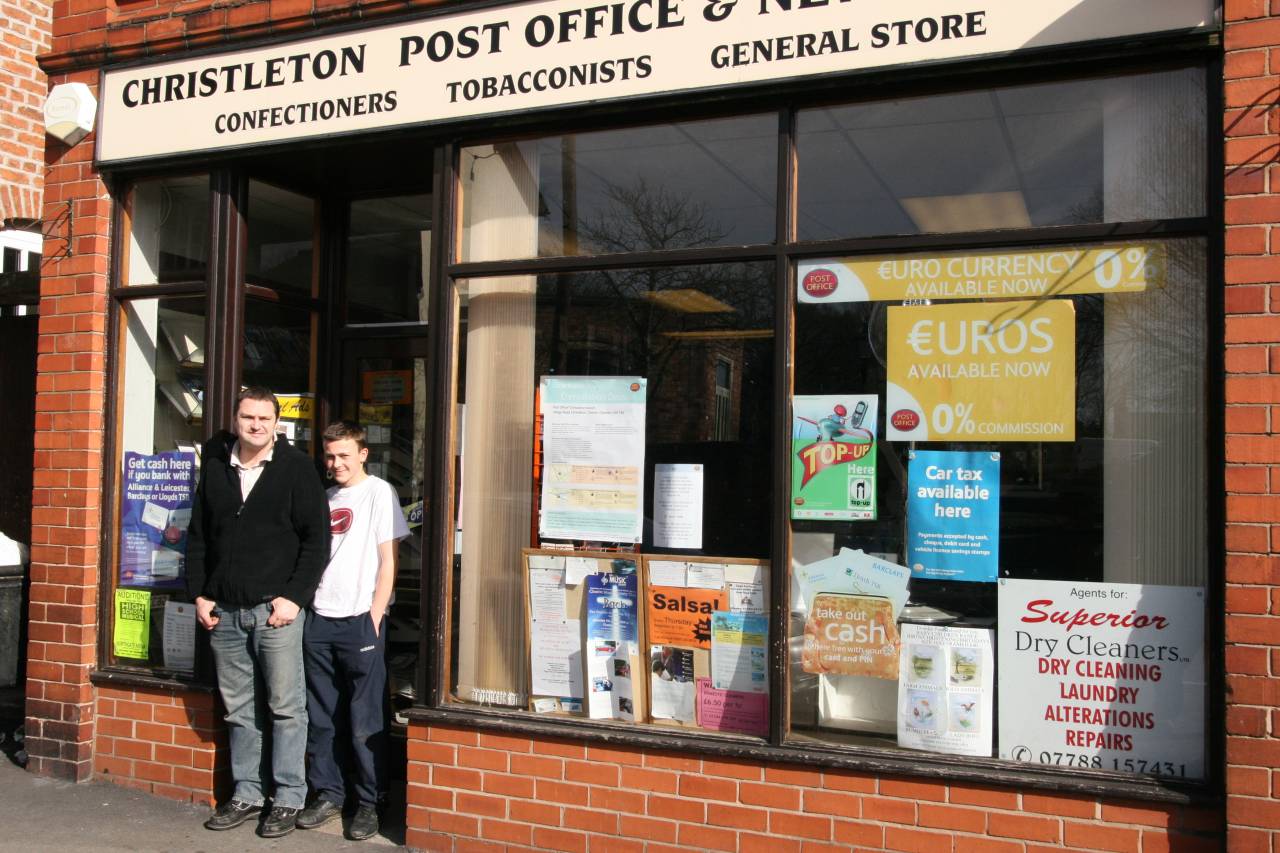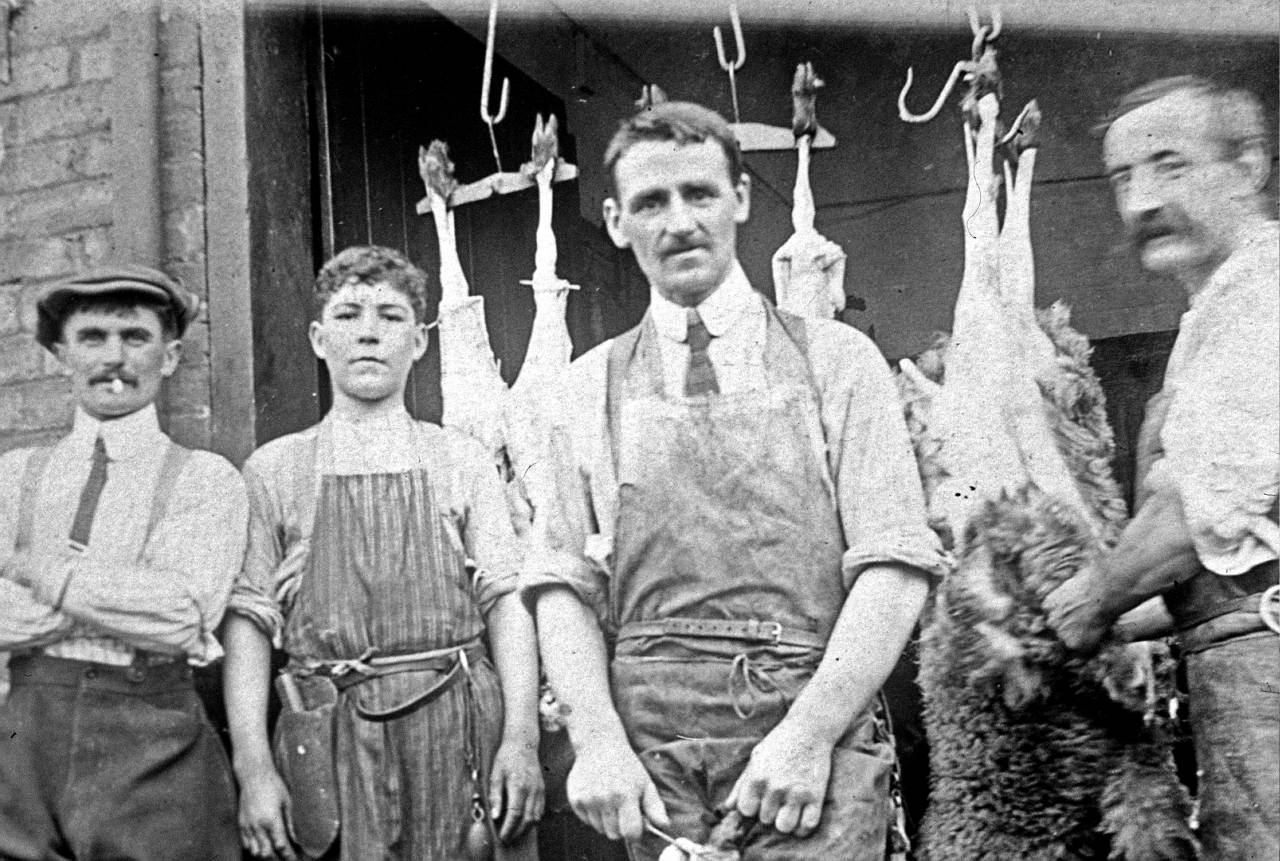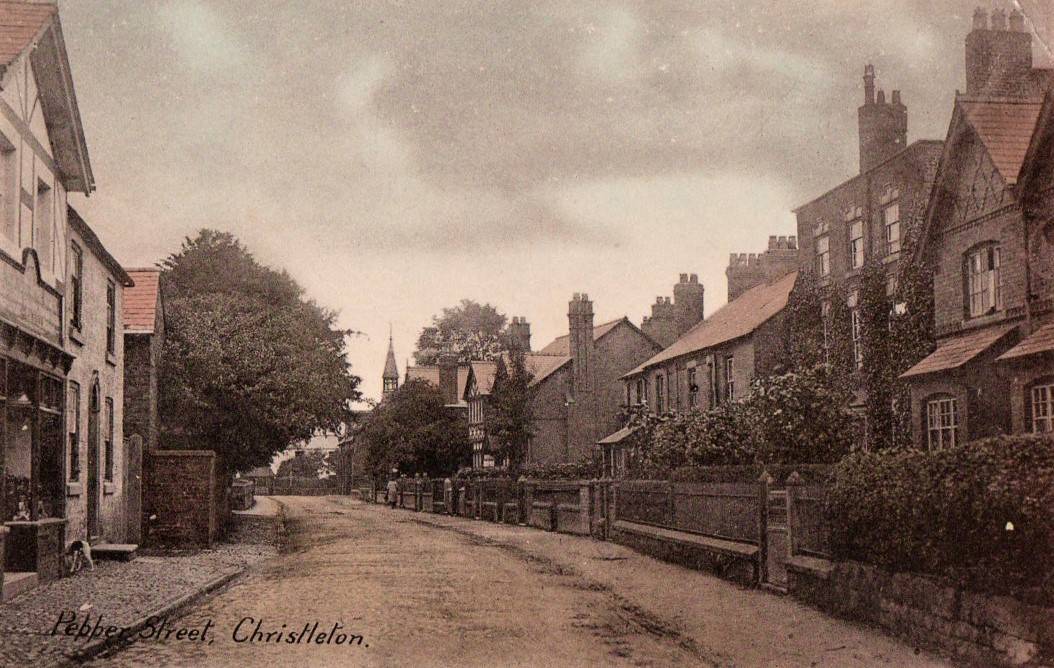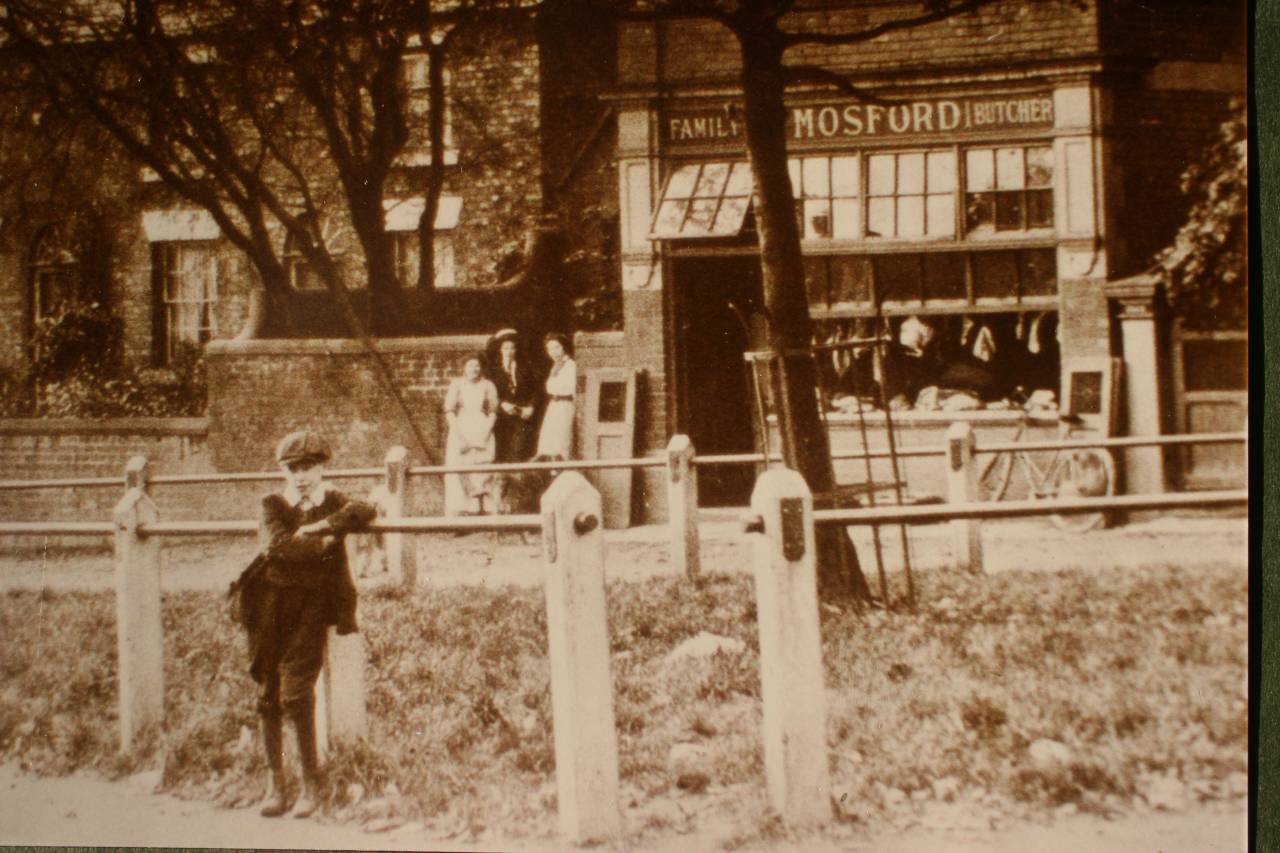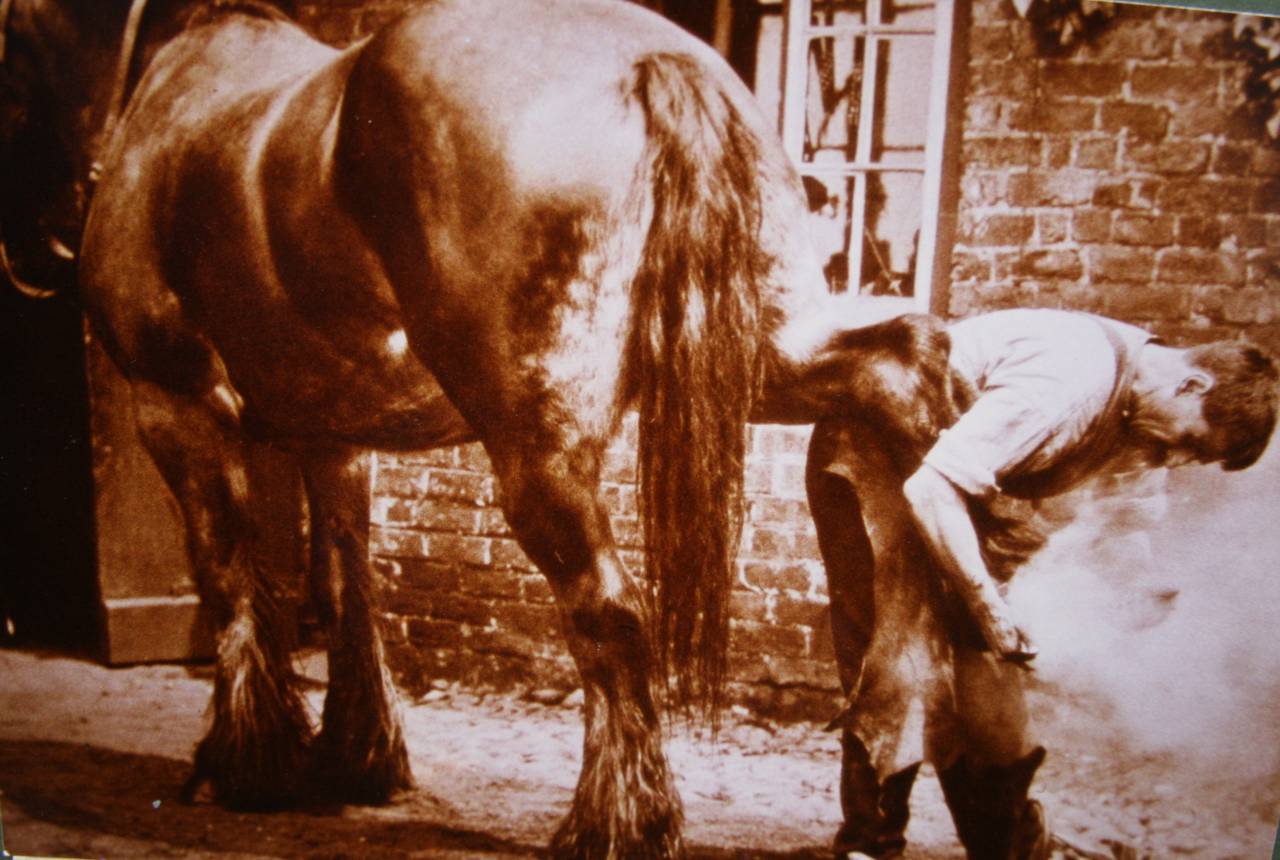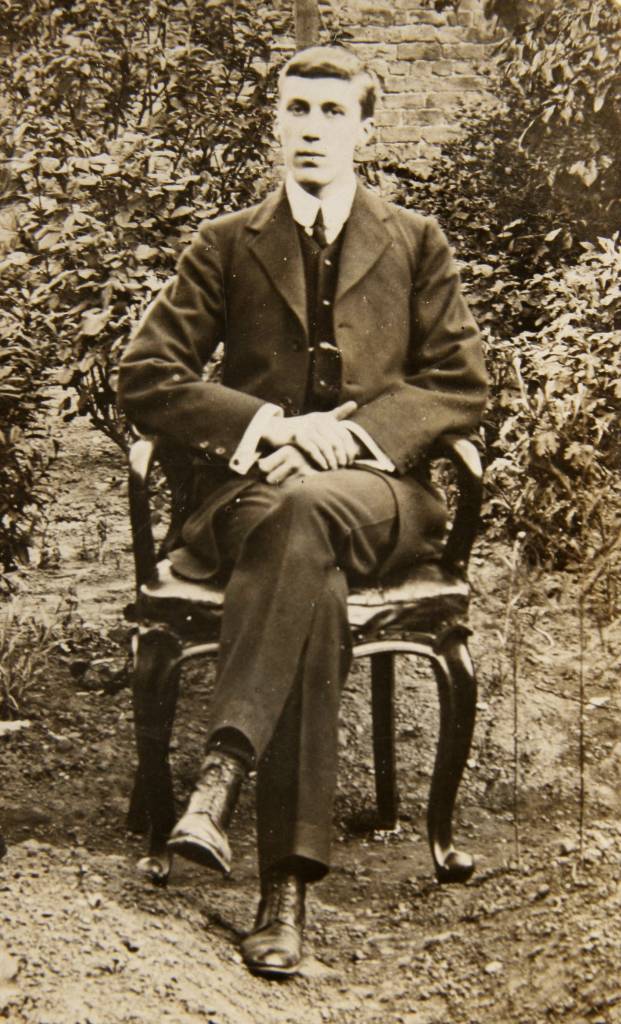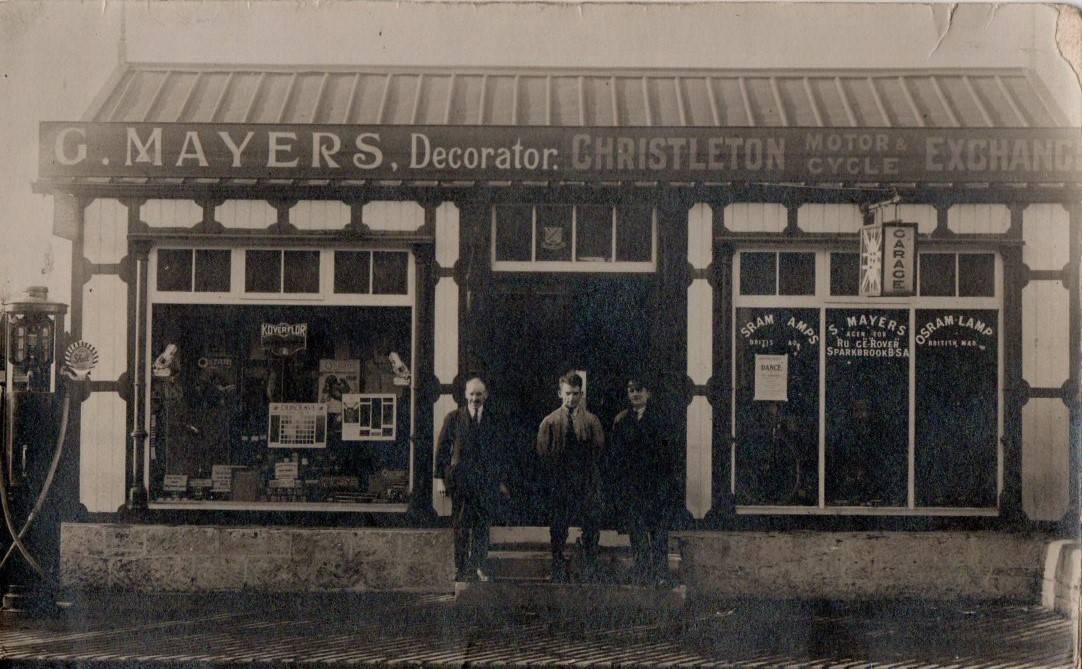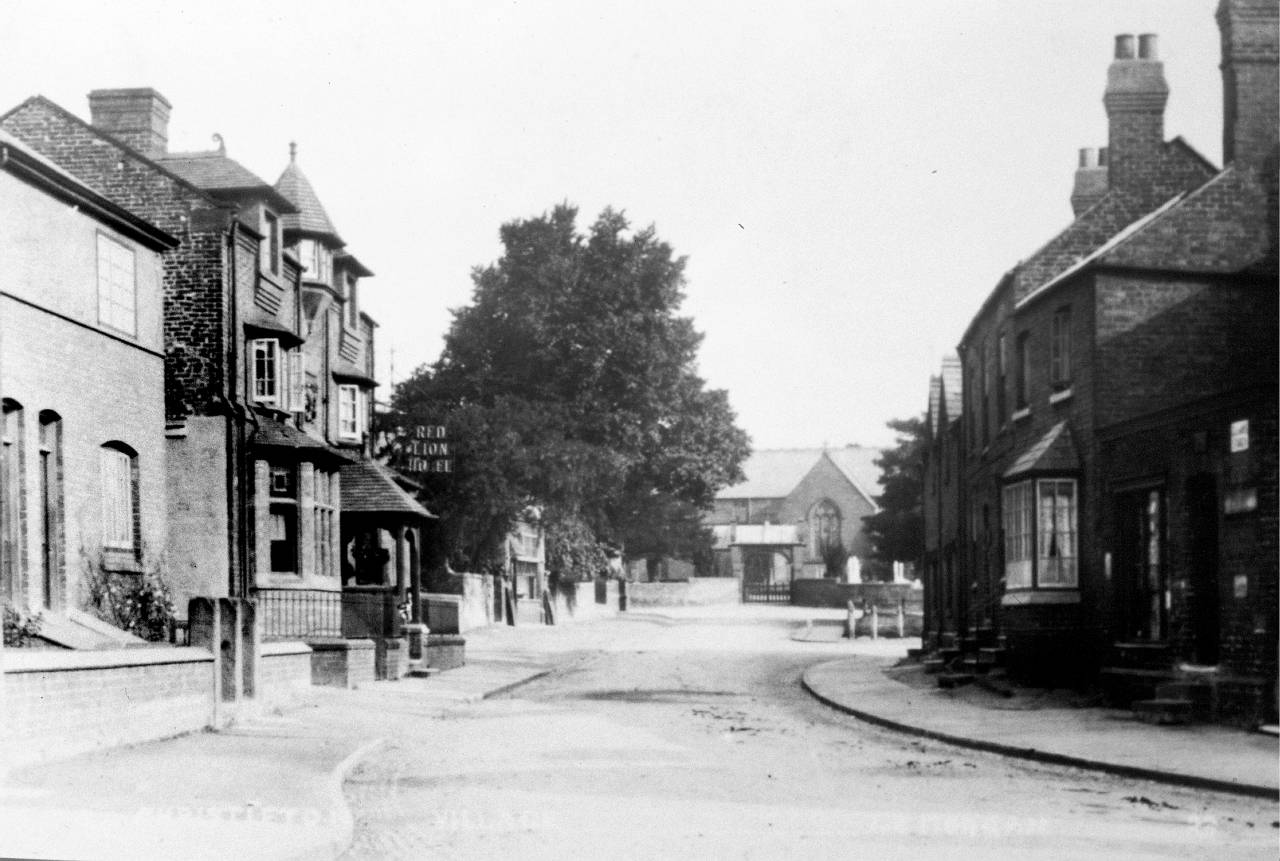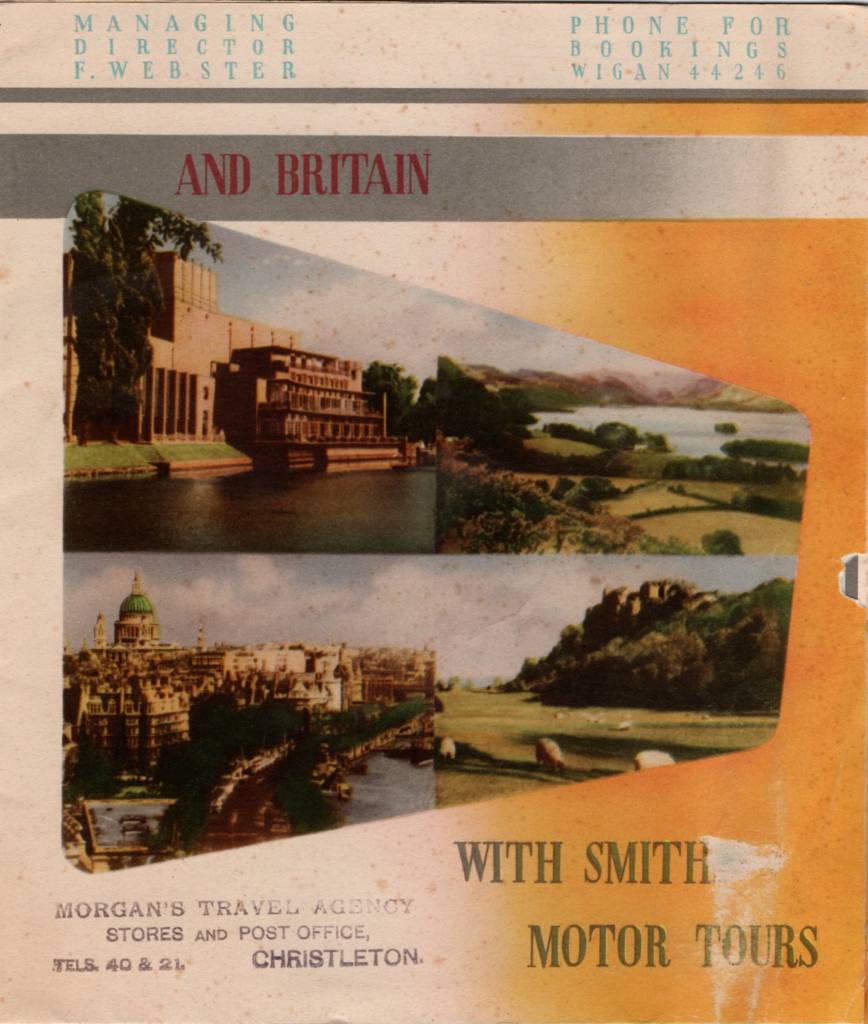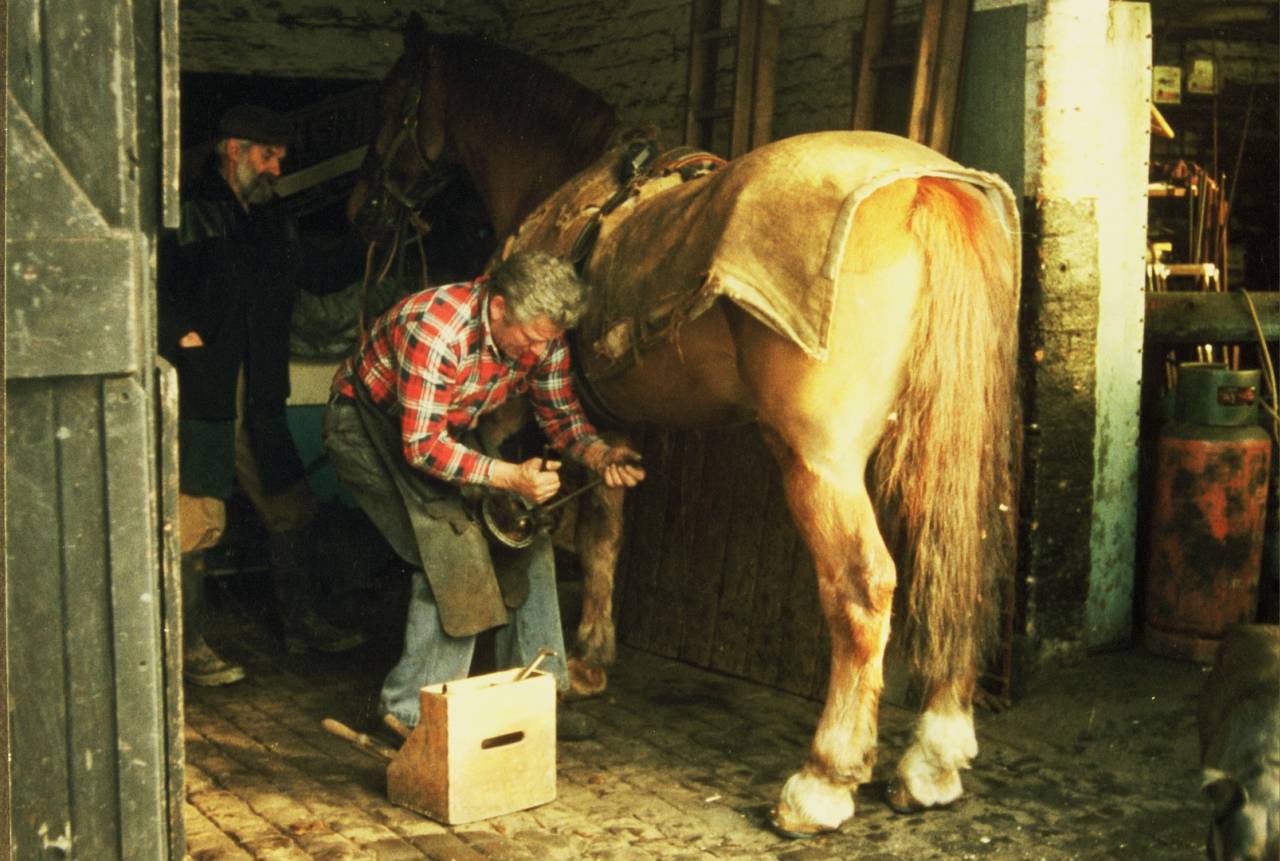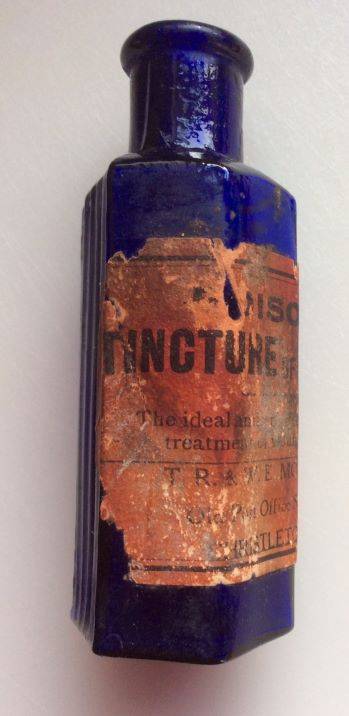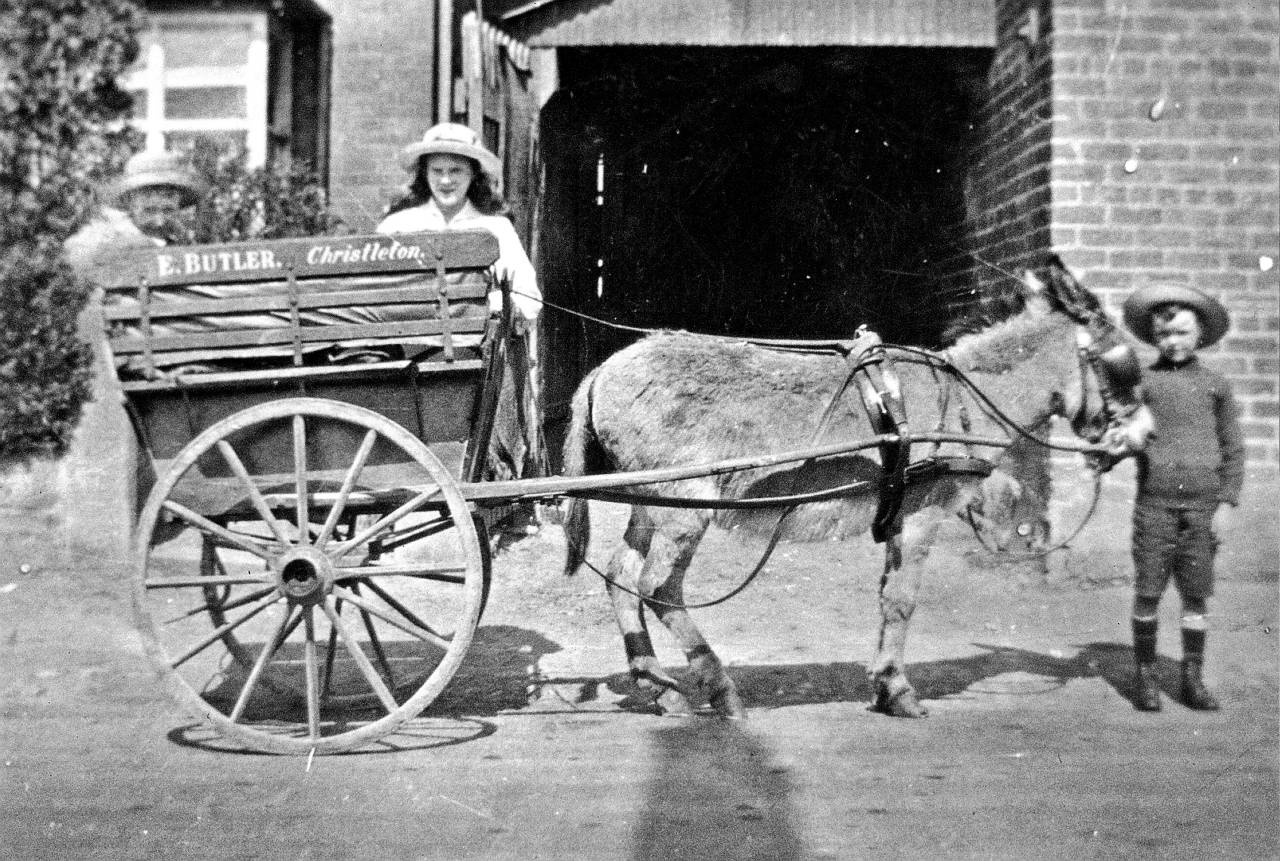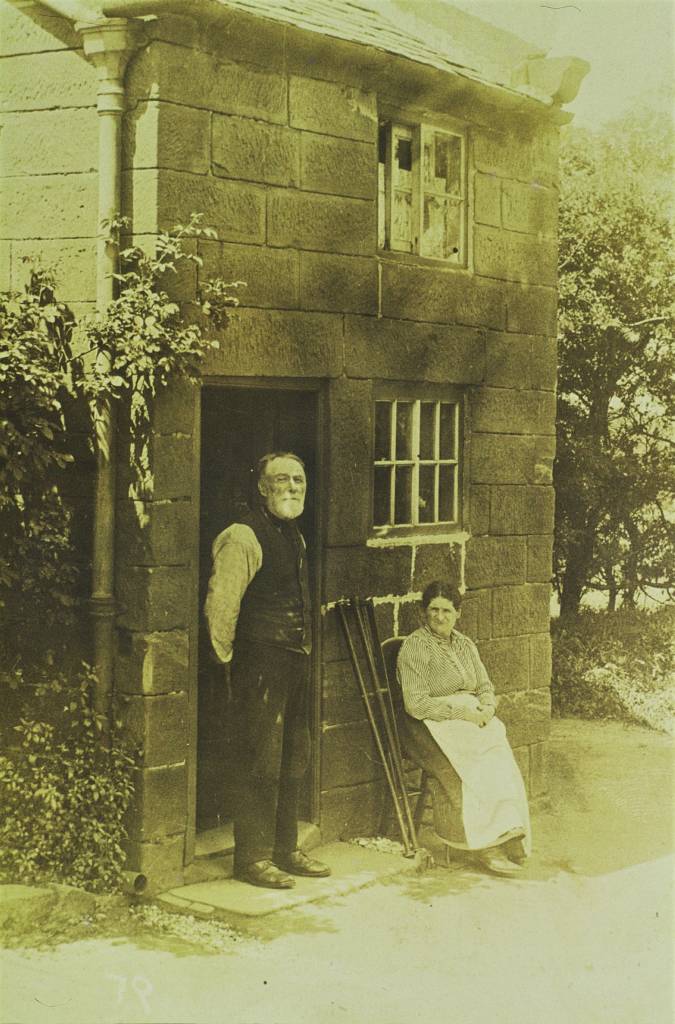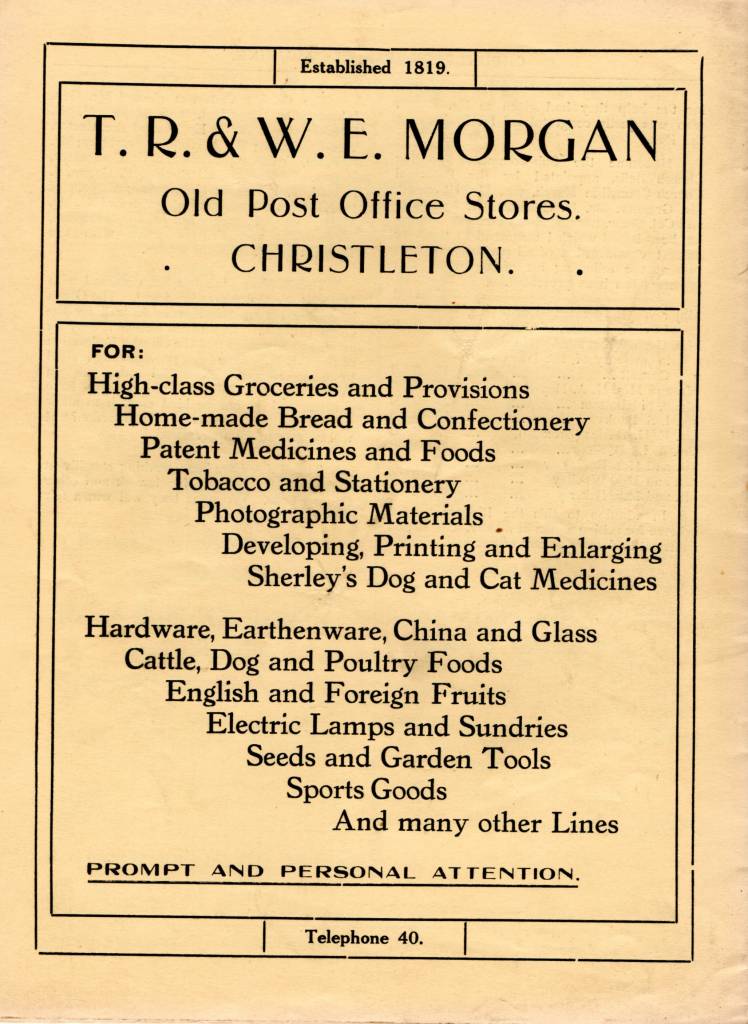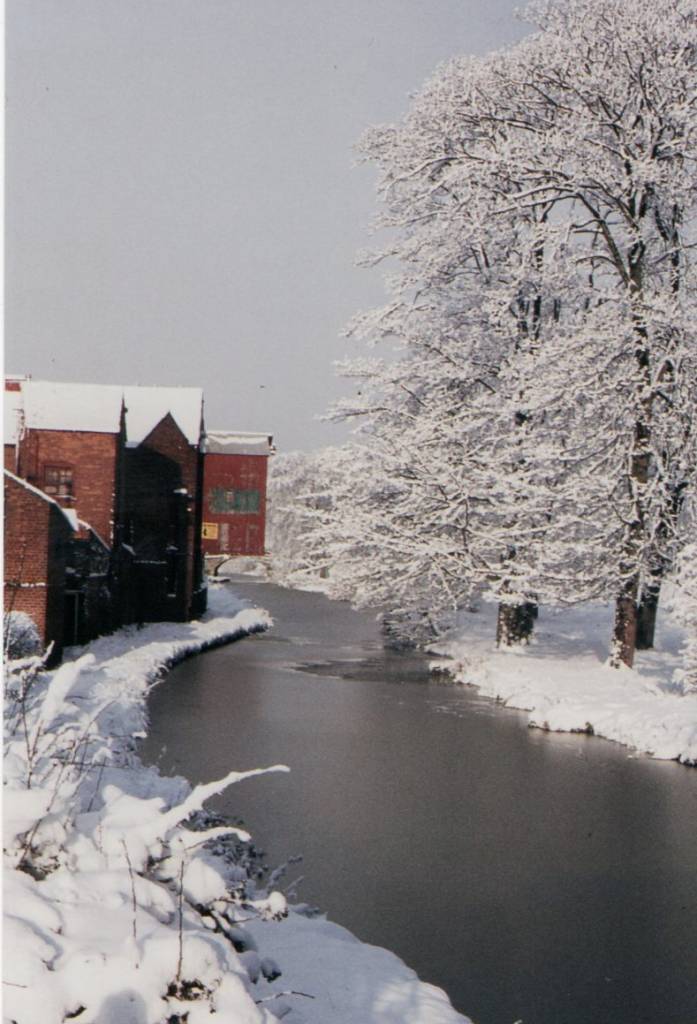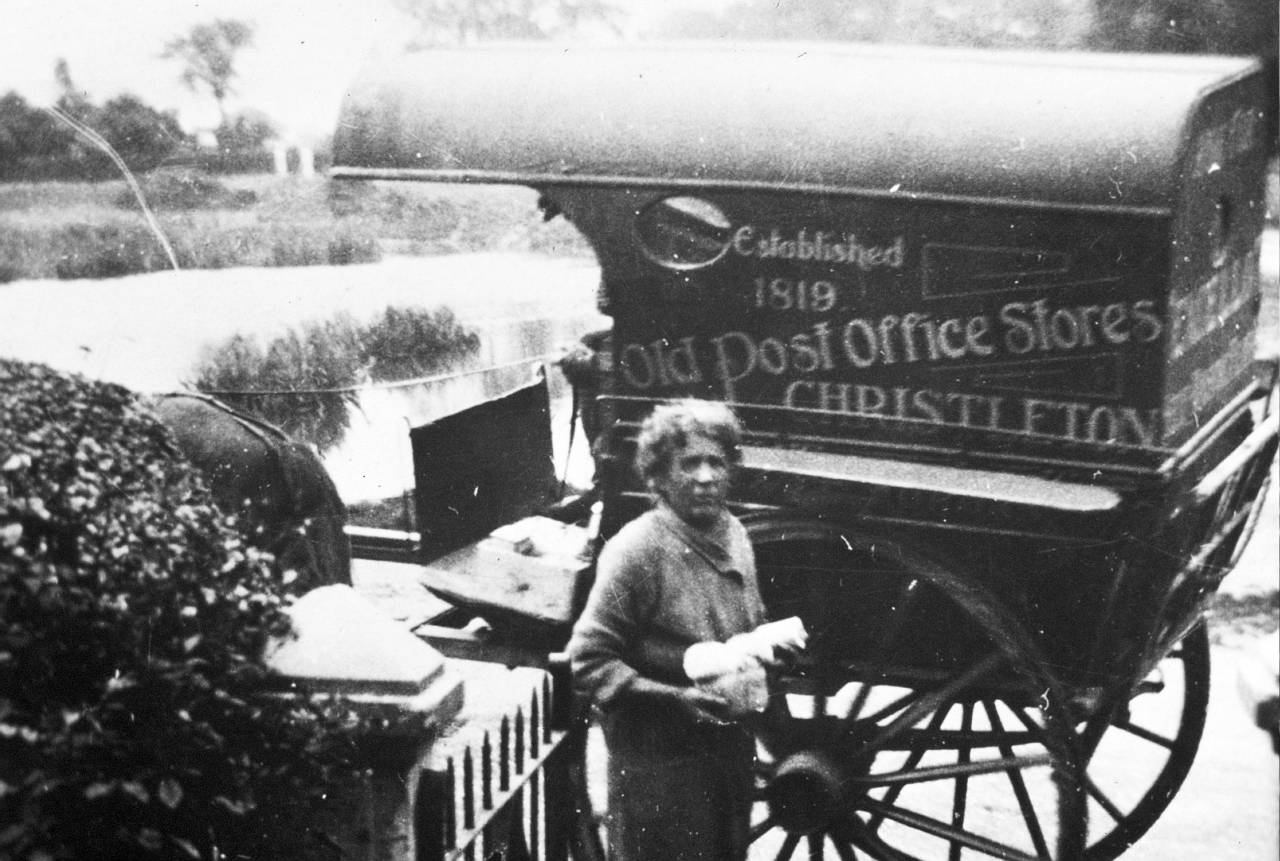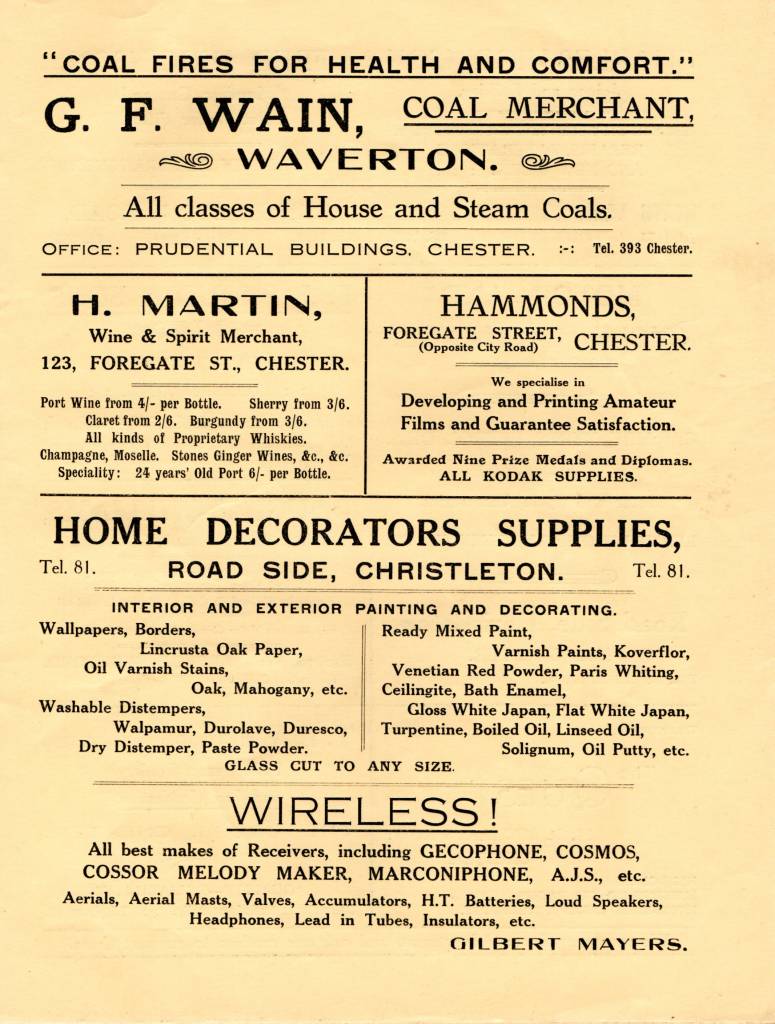
SHOPS
As part of the new series of illustrations from the Christleton archives I’ve chosen this month to highlight some of the business premises that have existed in the village since the 1900’s. Many of the photographs come from the T R M Collection. TRM or Reg Morgan was the son of Doris, who was a member of the famous Christleton Mayers family, and so many of the pictures are linked in some way. Reg was a keen photographer, as well as a keen businessman alongside his brother Eric, and always seems to have had a camera with him to capture village events. (The Christleton Local History Group archive has about 50 black & white postcard prints taken in the village by Reg).
The first Post Office and store, however was on the corner of Pepper Street and Windmill Lane and included a bakery. In fact Doris Morgan can be seen in one picture delivering bread from her bread cart (Stores established 1811) to a house by Christleton Pit. This initial business appears to be a joint venture between Thomas Johnson, Postmaster, and the Morgan Family. Just further along Pepper Street on the church side was Morgans “Super Store” an amazing village shop that existed before the name super store was even coined I guess. You could get almost everything you needed there, including chemicals and even film for your camera. You can see from two of the advertisements the range of goods they sold, as well as being agents for insurance and holidays. Imagine being able to purchase, groceries, provisions, bread, confectionary, medicines, tobacco, stationary, English & foreign fruits. Hardware, pottery, china and glass, cattle, dog and poultry foods, seeds and garden tools, even sports equipment, in the village.
It looks as though the village Post Office from the corner of Pepper Street and Windmill Lane moved to the black and white house “Two Gables” on the right opposite the church in the early 1900’s, before moving to the site which is now Village Stores.
Millward’s Stores in the centre of the Village was a shop selling lots of family friendly goods, from groceries to sweets. It later became Miss Yate’s Haberdashery Shop, and also an Antique shop for a short time, before its latest role as Drakes Hairdressers. The Post Office nearby was run successfully by Ernest & Emma Hall in the 1960’s and 70’s, who were followed by Peter & Marjorie Jackson, and when they retired, their son Paul. One of the most successful village shops for almost 150years was the Butcher’s Shop opposite the Village Green initially run by the Mosfords and then by their son in- law Jim Partington. There were two slaughter houses in the village to supply the butchers shop, one near the Pit and the other behind the present “Ring o Bells”. This shop closed in the mid 1980’s after Sainsbury’s set up their supermarket in Boughton. The Butchers Shop was one of the best places to visit in the village and Jim & Lucy Partington were just wonderful hosts. Apart from selling excellent meat, they would look after your door keys for deliveries, and it was a great place to find out what else was happening in the village!!
One of our most recent gifts to the archive is the image of the shop on Roadside, Whitchurch Road run by Gilbert & Samuel Mayers. They were selling decorator’s supplies including flooring and paints, as well as wireless sets and electrical equipment. They also sold and exchanged motor cycles and had petrol pumps, one can be seen to the left of the picture. I will deal with Bulter’s Mill more fully in another month, but Ernest Butler the miller, also had a bakery and a delivery cart. Another business on Roadside was Jones the shoemaker, one of at least three such premises in the village. You can also see images of Sadlers Stores adjacent to the old Girls and Infants School in Quarry Lane. This too was an early supermarket where you could get all sorts of groceries, bread, cakes, confectionary, fruit and vegetables. I’ve also included a picture of George the saltman near Rowton Bridge where you could obtain salt for preserving your meat. There are also a few images of the Blacksmith’s Smithy on Plough Lane and Littleheath Road. The first image of the blacksmith’s workshop in Plough Lane dates from c1907, but the last working blacksmith was Barry Crump and he can be seen shoeing the horse of Mr Greenway from Cotton Farm in the late 1970’s. There will be more detail on the Blacksmiths in the village on another occasion.
-

Deliveries and Butchers Shop, Christleton circa 1980
-

Partington's Butchers Shop in Christleton
-

Jim Partington working in his Christleton shoop
-

Morgans Shop in Pepper Street, Christleton
-

Pepper Street, Christeton in the 1970's
-

Old Post Office in Pepper Street
-

Post Office and Stores in Pepper Street in the 1890's
-

Jones the Shoemaker in Whitchurch Road
-

Village Green, Christleton 1907
-

Advert for Morgan's shop in Christleton
-

Christleton Village Shops
-

Business Adverts in Chester and Christleton Road
-

Millwoods Stores in Christleton
-

-

Christleton Village Antiques
-

Blacksmith on Plough Lane, Christleton
-

Post Office Stores in Village Road, Christleton run by the Jackson family
-

Joe Mosford amd Tom Broster, Butchers in Christleton
-

Old Postcard View of Pepper Street, Christleton circa 1907
-

Mosfrod, Family Butchers on the Village Green Christleton
-

Blacksmith Fleet circa 1910 Christleton
-

T. R. (Reg) Morgan, Christleton
-

G. & S. Mayers Garage and Shop on the Whitchurch Road in Christleton
-

Looing down Papper Street towards the Village Green
-

Saddlers Shop in Quarry Lane, Christleton
-

Morgan's Shop Advert
-

Barry Crump the Blacksmith circa 1977
-

Bottle ffrom Morgan's Shop in Christleton
-

Butler's Bread Cart, Christleton
-

George The Salt Man, Rowton Bridge, Christleton
-

Advert fro Margan's Post Old Office Stores in Christleton
-

Butlers Mill
-

Doris Morgan's Bread Cart in Christleton
-

Adverts for Christleton Shops
